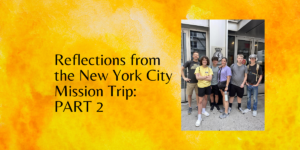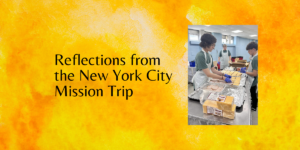[soundcloud url=”https://api.soundcloud.com/tracks/336897000″ params=”color=ff5500&auto_play=false&hide_related=false&show_comments=true&show_user=true&show_reposts=false” width=”100%” height=”166″ iframe=”true” /]
August 6, 2017 – Ninth Sunday after Pentecost/Communion
Proclaimer: Rev. Martha D. Kearse, DMin
Sermon Series: The Ten Commandments for the 21st Century: The Calling of Wisdom
Sermon: Thief
Scripture: Exodus 20:15; Malachi 3:8-10; Psalm 24, 2 Samuel 12:1-7; Ephesians 4:1-28
Sure, I’m a thief. And, as I confess this to you, I want to be clear. I am not a thief in some cute, metaphorical way, as in “I stole my husband’s heart.” I am a thief. I steal items which do not belong to me. Really, what I am, is a magpie—shiny things attract me. Now, I am not telling you today that you have employed a world class art thief, nor am I confessing to having stolen church funds. I have not. Mostly, I am a petty thief. Things that don’t belong to me end up in my possession. For me, the consequences of getting caught shop-lifting have always been significant—I wasn’t willing to risk being thrown out of school, or losing my job. And I do have a moral code—I don’t really want to take significant things from other people and cause them harm. But, as Jeff Goldblum told us in “The Big Chill,” “none of us could get through the day without one juicy rationalization,” and I have found myself thinking, “No one will miss this, and I really want it…”
David, King of the Israelites and hero of his people, has some of those boundary issues, doesn’t he? And he feels kind of ok with what he’s done. Uriah didn’t deserve that beautiful wife. He didn’t appreciate her and couldn’t treat her like the royalty she is. The story of Nathan, the prophet, and his visit with David is one that resonates through the ancient world—many cultures have a similar tale of a prophet coming to a king to tell him a story which unmasks the king’s own crime. Nathan tells David a story about a rich man, who has many sheep, who, having been visited by a friend, doesn’t want to kill one of his own sheep and steals the one sheep which belongs to the poor farmer and kills and eats it. David, of course, is appalled at this behavior! He is furious! He’s ready to execute the man who did this! And the answer for David, obviously, is the answer the Bible always gives us when presented with a story like this: It’s YOU! You are the thief!
The commandment about stealing is very short—in Hebrew, it’s actually one root word, made negative. Ganab (ga-naav) is the word for forcibly taking something away—it is used for the theft of property or for kidnapping, but can also have connotations of deception—doing something under cover of darkness. And we always think about property with theft—we are a people obsessed with property and believe that if we pay the price on a sticker for an item, we own it and we are not thieves. Our faith presents some problems for us here, though—according to our sacred text, who is the owner of every single thing in the world? God. Who owns our houses, our cars, our land, our clothes, our bodies, our children, our spouses, our friends—every single thing we see—who owns it all? Right. So we don’t actually OWN anything. Ok, ok. But we have been given the use of some things according to the rules of our culture, and we are told to live in our culture according to its rules. So, though I don’t technically OWN my house, it is mine to use, and not yours. Civil conduct demands that we don’t just walk into each others’ houses and move in—that would be chaos.
But even there, we have a problem, because there exist a long series of instructions about the things we have been given to use, including admonitions that we are not to use every bit of what we have—some is to come back to God for God’s use; even more is to be set aside for people who do not have the resources we have—the entire edge of our field, all the way around, is to be set aside for the poor to glean. This is over and above what we have set aside for God. And none of it is actually ours, so the mere assumption of ownership is problematic. Thinking on these realities of our faith has brought up many more questions for me:
- Is stealing about more than property?
- If so, is it stealing if I yell at you, and steal your peace?
- If I treat you badly, and then, when you complain to me, pretend that YOU caused me to do so, have I stolen your sense of self? Did I steal your confidence or your rationality?
- If I refuse to give up my big car and my plastic bags and my endless need for straws, have I stolen the health of the planet from my children?
- If I pretend not to believe in climate change, am I stealing the days we could be working to fix our problems?
- Am I guilty of theft if I tell another person a secret, told to me in confidence, by a third person? Have I stolen that person’s privacy? That person’s sense of security in our friendship?
- Should I confess to theft if I am possessive of my work, never allowing others to help me or be part of what I am trying to achieve? Am I stealing from them when I say, “It’s easier for me just to do it myself?”
- On the other hand, if I have agreed to be part of a system, and yet I am unwilling to do the work required to hold up the system, only doing what serves me or my family, have I stolen from the system? Am I stealing time from the others who must step in to cover what I am not willing to do?
- If I am condescending to another group of people, because of their gender or race or other element of identity, am I stealing their rights to fair treatment from them?
- What if I just ignore them when they tell me that others are treating them in this way? What if I pretend not to notice, or allow myself to be blind to their pain, not believing them when they say they are being abused—am I still guilty of stealing their rights? Their safety? Their sanity?
Addressing our own guilt is not fun. I have heard, more than once since I became a minister to this congregation, people say that they did not come to church to be made to feel guilty. As if guilt was only felt when someone else pointed it out. I submit to you that David knew exactly what he had done, and he knew it long before Nathan showed up. It is clear in his over-reaction to the man who stole a sheep—he’s ready to kill a man over the theft of a sheep! I submit to you that our intense anger at people who cut us off in traffic, our defensiveness over any suggestion that we may have done anything wrong masks intense feelings of guilt and shame. No one gets angry at a doctor who finds a cancerous spot and wishes to excise it. A healthy life requires that the cancer be removed. Coming here, coming to this place and to this table, and addressing that guilt head on—that’s a healthy approach to guilt. It is not that we do things and don’t feel guilty unless someone is callous enough to point them out. We wear our guilt around us like a bag of stones, all the time.
Today, at this table, we offer the chance to take that bag off our shoulders and lay it down. Permanently. On your pews, you will find a rock. You define the rock as a symbol of whatever you decide is appropriate. We are not called to carry all the sins of the world—just our own. Just what we have actually done, what we are actually guilty of. If you wish, you can pick the stone up—claim it. And then, if you would confess it, and lay it before God—if you would rid yourself of its weight—whatever it is that you have been carrying—bring it forward and lay it on this table. And as we take into our very bodies the spirit of Christ, open yourself to true forgiveness, release the weight of guilt, and prepare to take your body out into the world, this world which belongs to God, light, clean, fresh and new.









